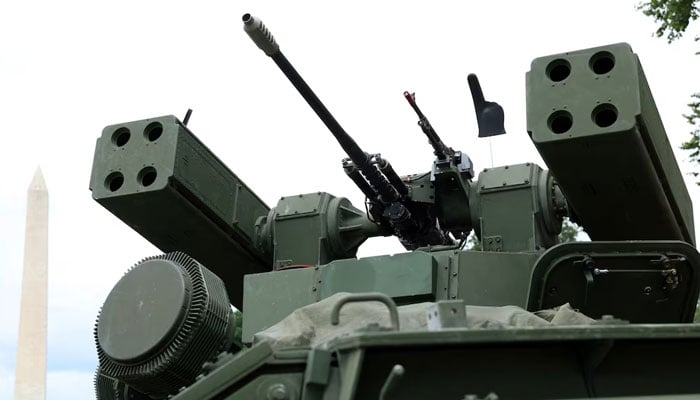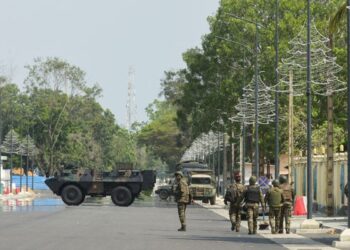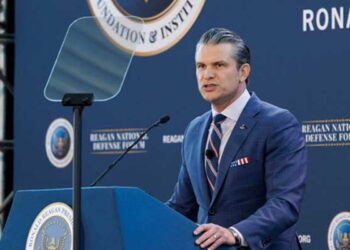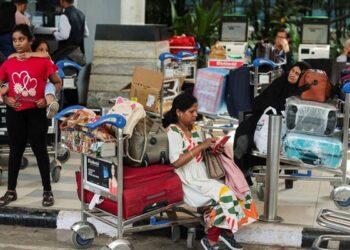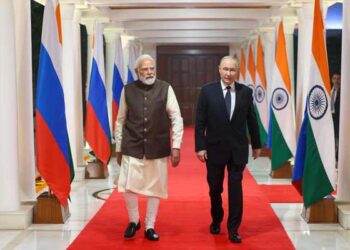Select Language:
India’s defense minister has canceled the planned trip to Washington, signaling a pause in discussions to buy U.S. military equipment. While officials indicate that deals could still be finalized, New Delhi is seeking clarity on tariffs before proceeding.
India had intended to send Defense Minister Rajnath Singh to the U.S. soon for an announcement concerning some procurement, but that trip has now been called off. The move comes after President Donald Trump imposed an additional 25% tariff on Indian goods on August 6, citing Delhi’s Russian oil imports and alleged support for Russia’s conflict in Ukraine. This tariff hike increased the overall duties on Indian exports to 50%, making it one of the highest among U.S. trading partners.
Although there is a history of Trump quickly changing tariff policies, India remains engaged in ongoing conversations with Washington. One source said that defense deals might move forward once India gains better clarity on tariff policies and the overall bilateral relationship—though not as immediately as previously expected. Current instructions do not officially pause the purchases, suggesting India still has the option to resume talks swiftly, but for now, no significant progress is being made.
Both India’s defense ministry and the Pentagon have not responded to requests for comment. Despite the strains, India emphasizes that its defense partnership with the U.S. remains strong and criticizes what it perceives as unfair targeting, pointing out that Washington and European allies continue engaging with Moscow when it suits their interests.
This marks the first known instance where negotiations for purchasing Stryker combat vehicles from General Dynamics and Javelin anti-tank missiles from Raytheon and Lockheed Martin have been put on hold due to tariffs. Previously, Indian officials and U.S. companies had planned to pursue joint procurement and production of these systems, as announced by Trump and Modi in February.
Also canceled was Singh’s planned announcement of buying six Boeing P8I reconnaissance aircraft and associated support systems for the Indian Navy, a deal that was already in advanced negotiations. Responses from Boeing, Lockheed Martin, and General Dynamics deferred queries, while Raytheon did not comment.
India’s increasingly close defense ties with the U.S., amid their shared strategic rivalry with China, had been seen as a significant foreign policy achievement during Trump’s presidency. Traditionally, Russia has been India’s top arms supplier, but in recent years, India has diversified, importing more from Western nations—including France and Israel—due to various constraints on Russian exports and battlefield performance issues.
The overall U.S.-India military relationship, including intelligence sharing and joint exercises, remains unaffected. India is also considering reducing oil imports from Russia and exploring alternative supply deals, including with the U.S., if competitive prices can be secured. Domestic political pressures and rising nationalism have complicated Modi’s ability to shift entirely away from Russia, although Russian oil discounts have diminished to the lowest levels since 2022.
While there have been some tensions, notably Trump’s false claims about U.S. mediation in the India-Pakistan conflict and his hosting of Pakistan’s military leaders, India continues to explore Russian military technology, such as the S-500 missile system, though it currently sees no pressing need for new arms from Moscow. The long-standing defense relationship will likely ensure ongoing support from Russia for existing Indian military systems.

